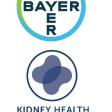Kidneys are vital organs that play necessary roles in solute and water reabsorption, toxin secretion, acid-base regulation, and mineral metabolism. While tubular damage within the kidneys is a known risk factor for the progression of kidney disease, the prognostic implications of tubular damage with respect to cardiovascular outcomes has not been established. Researchers at the University of California, San Francisco, were led by Dr. Vasantha Jotwani to examine the associations of three urine biomarkers that are specific to kidney tubular health with risks of cardiovascular disease, heart failure, and all-cause mortality in elderly individuals. The biomarkers included α1-microglobulin (α1M), a protein that is filtered and reabsorbed by the tubules under healthy conditions, amino-terminal propeptide of type III procollagen (PIIINP), a protein released into urine during the breakdown of collagen and indicates fibrosis, and neutrophil gelatinase-associated lipocalin (NGAL), a marker of injury to the tubules. The investigators hypothesized that these biomarkers could be independent risk factors for cardiovascular disease and death.
A subcohort of 502 participants was randomly selected from 3,075 participants in the Health, Aging, and Body Composition Study. Beginning in 1997, male and female participants, aged 70-79 years, underwent a baseline medical evaluation, then were questioned regarding hospitalizations for coronary heart disease, heart failure, or stroke every six months. Urine biomarkers were measured once at baseline and kidney function was measured four times during the ten-year follow-up.
Researchers found that higher urine α1m and NGAL concentrations were associated with higher risk for cardiovascular events and all-cause mortality but not heart failure events. Urine PIIINP concentrations showed no significant associations with cardiovascular disease, heart failure, or mortality. Among the three studied biomarkers, researchers found urine α1m to be the strongest predictor of cardiovascular disease and mortality. Dr. Jotwani emphasized the importance of these findings, “Damage to kidney tubules may be a risk factor for heart disease which we might not know about through routine clinical tests. New tests that identify damage to the kidney tubules may give patients and their doctors more information about their risk of heart disease.” Based on these data, she cites the necessity of future studies, “to find out the level of kidney tubule damage that is significant enough for people to change their lifestyle” and “whether clinicians should include these tests when making decisions about how to treat their patients.”



